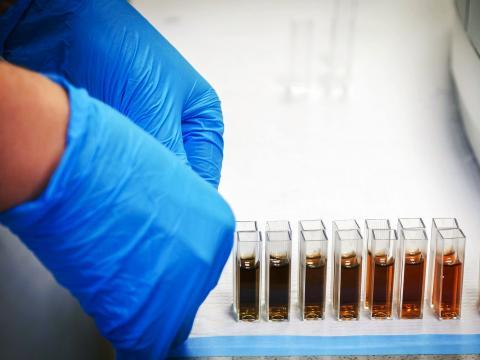
BMC Seminar Thursday 23 January, 11:40 in Læknagarður, Vatnsmýrarvegur 16, room 201
Speaker: Sigurður Trausti Karvelsson, PhD Student at Systems of biology laboratory under supervision of Próf Óttar Rolfsson and dr. Steinn Guðmundsson, Faculty of Medicine, University of Iceland
Title: IDH2-mediated glutamine dependency in breast epithelial cells: Implications for drug resistance.
INTRODUCTION: Epithelial to mesenchymal transition (EMT) is a fundamental developmental process with strong implications in cancer progression. Understanding the metabolic alterations associated with EMT may open new avenues of treatment and prevention.
METHODS: We have utilized 13C-carbon analogs of glucose and glutamine and network analysis to specifically examine differences in internal metabolic fluxes within both central carbon and lipid metabolism following EMT in breast epithelial cells.
RESULTS: Higher glycolytic rates and glutamine-dependent glutathione generation were observed pre-EMT, whereas higher TCA-cycle flux fueled by reductive carboxylation of glutamine to lipid biosynthesis is the post-EMT phenotype along with significantly lowered glutathione biosynthesis. Furthermore, the inhibition of mitochondrial NADP-dependent isocitrate dehydrogenase (IDH2) a key enzyme in reductive carboxylation, affected both proliferation and metabolic activity of cells both pre- and post-EMT. Finally, we compared the resulting metabolic phenotypes to the NCI-60 Human Tumor Cell line panel and show that glutathione concentration is significantly associated with the response to several drugs, which we then confirmed in our cell model.
